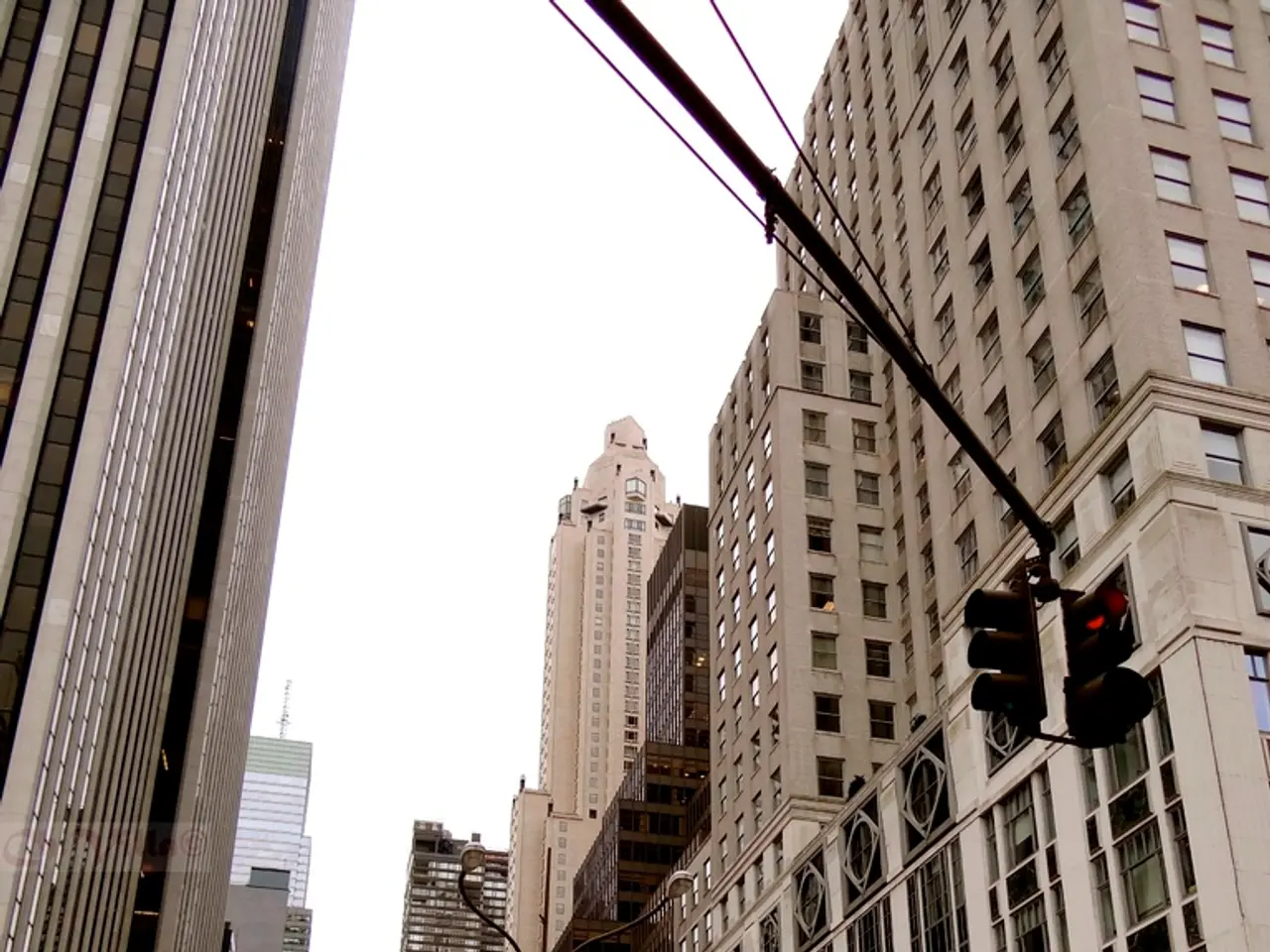Potatoes and Perils: Russia's Economy Faces a Crisis
Escalating economic challenges confront Russia
Hop On Board! Let's dive into the financial troubles Russia's currently wrestling with, shall we?
Russia, the motherland of the largest agricultural territories, is suffering from a potato and onion catastrophe! Even their fearless leader, Vladimir Putin, has taken notice, admittedly lamenting about the spud shortage a few weeks back. The scarcity of sugar beets and some vegetable variants has also sprouted up, he confessed.
Once upon a time, potato prices skyrocketed, making a kilogram cost more than one euro! With average incomes of around 1,000 euros before taxes and pensions at about 200 euros, every euro counts, and this price hike pinches. Soaring food prices are one of the primary culprits of Russia's current inflation, which is nestled comfortably at 9.6 percent as per the Ministry of Economy.
A Bouncer at the Party: The Central Bank
The central bank has taken a more-ish approach to inflation, increasing the interest rate to a whopping 20 percent. The idea is that higher rates make borrowing a struggle, decreasing the money supply, and – you guessed it – lowering demand (and thus inflation).
But Russia has struck a snag: the economy is now grappling with further complications due to this high-interest strategy.
A Warning Bell: Minster Maxim Reshetnikov
Our beloved friend Maxim Reshetnikov, the Economy Minister, took to the stage at the St. Petersburg International Economic Forum (SPIEF) to give an open warning: “The numbers show a cooling off, but entrepreneurs' feelings suggest we are already at the border of transitioning into a recession," he said. He voiced concerns that businesses are being deterred from investing due to the current interest rate level. In the third and fourth quarters of the year, investments might even be below last year’s level, the minister estimated.
Central Bank Chair Elvira Nabiullina danced around accusations of a misguided monetary policy but still acknowledged the unavoidable difficulties. Russia's economy has come through surprisingly strong following Putin's orders to throw down in Ukraine, despite Western sanctions. This strength primarily arises from a rigorous shift towards wartime production.
The Heart of the Matter: Civil Industries in Crisis
While the defense industry thrives, civil sectors have been struggling for quite some time. Companies in these sectors are grappling with high costs, labor shortages, and technological backwardness (which sanctions have kindly exacerbated). The construction and real estate sector sits in a severe crisis, while car production has slowed to a crawl since Western producers and suppliers have turned their backs on Russia.
While China sells more cars in Russia, it doesn't produce them locally. Speaking of car makers, Avtovaz – a company under the wing of Putin's ally Sergei Chemesov – hasn't managed to fill the void left by Western carmakers. At the St. Petersburg Economic Forum, they unveiled their fancy new ride, the Lada Azimut, set to roll off the production line next year. However, previous models are still piling up in warehouses due to lackluster demand. New car sales in Russia have plunged once again after a brief peak in 2024. In the first five months, only around 450,000 vehicles were sold, a decrease of 26%. Avtovaz predicts a market dive of 25% for the whole year.
Agricultural Machinery Manufacturer Rostselmasch in Turmoil
To make matters worse, the agricultural machinery manufacturer Rostselmasch is also swimming in a sea of crisis. The producer of combine harvesters and tractors has recently sent over 15,000 employees on forced leave. Their stress levels skyrocket as it's uncertain whether production will continue post-leave. Short-time work was introduced in March, and 2,000 workers were let go in April.
You know what they say: when life gives you lemons, make vodka. But in Rostselmasch's case, the market for their agricultural equipment is stagnant. After a 20% market drop last year, the decline has continued by 10 to 15% this year. A whopping 40% of their annual production is stockpiling in warehouses due to the farmers' lack of coin. Hefty interest rates, rising production costs, and the farmers' financial woes all conspire against them.
No Harvest for the Needy
This impact is being felt in the harvest! In the first year of the war, Putin boasted about harvesting 157 million tons of grain. However, yields have dropped in the past two years. While Putin has ordered the grain harvest to surpass 170 million tons by 2030 and ship 80 million tons out of the country, Deputy Prime Minister Dmitri Patrushev cautioned that things are heading in the opposite direction and need to be corrected swiftly.
At least the government is betting on a better harvest than last year. Potatoes could be harvested as early as next week, with increased supply possibly bringing down prices for a temporary reprieve.
Luckily, President Putin won't have to ponder on how to tackle the spud situation, as his good buddy, "potato dictator" Alexander Lukashenko of Belarus wisely advised his people to chow down on potatoes only once or twice a week to avoid plumping up. Lukashenko himself isn't exactly known for dieting.
Sources: - ntv.de - André Ballin - dpa
Categories: - Russia - Inflation - Food Shortages - Agriculture - Sanctions - Economy
The community is concerned about the escalating economic crisis in Russia, particularly the impact on employment policies. The rising interest rates set by the central bank, designed to combat inflation, have resulted in challenges for businesses, causing a potential slowdown in investment and, according to Economy Minister Maxim Reshetnikov, approaching a possible recession.
Moreover, the agricultural sector, including the leading agricultural machinery manufacturer Rostselmasch, is facing a crisis. High costs, labor shortages, and a stagnant market have led to job losses and production issues, affecting both the domestic and international industries. The government's efforts to increase agricultural output have been hindered, as indicated by Deputy Prime Minister Dmitri Patrushev, who warned of declining yields and the need for immediate corrective action.




